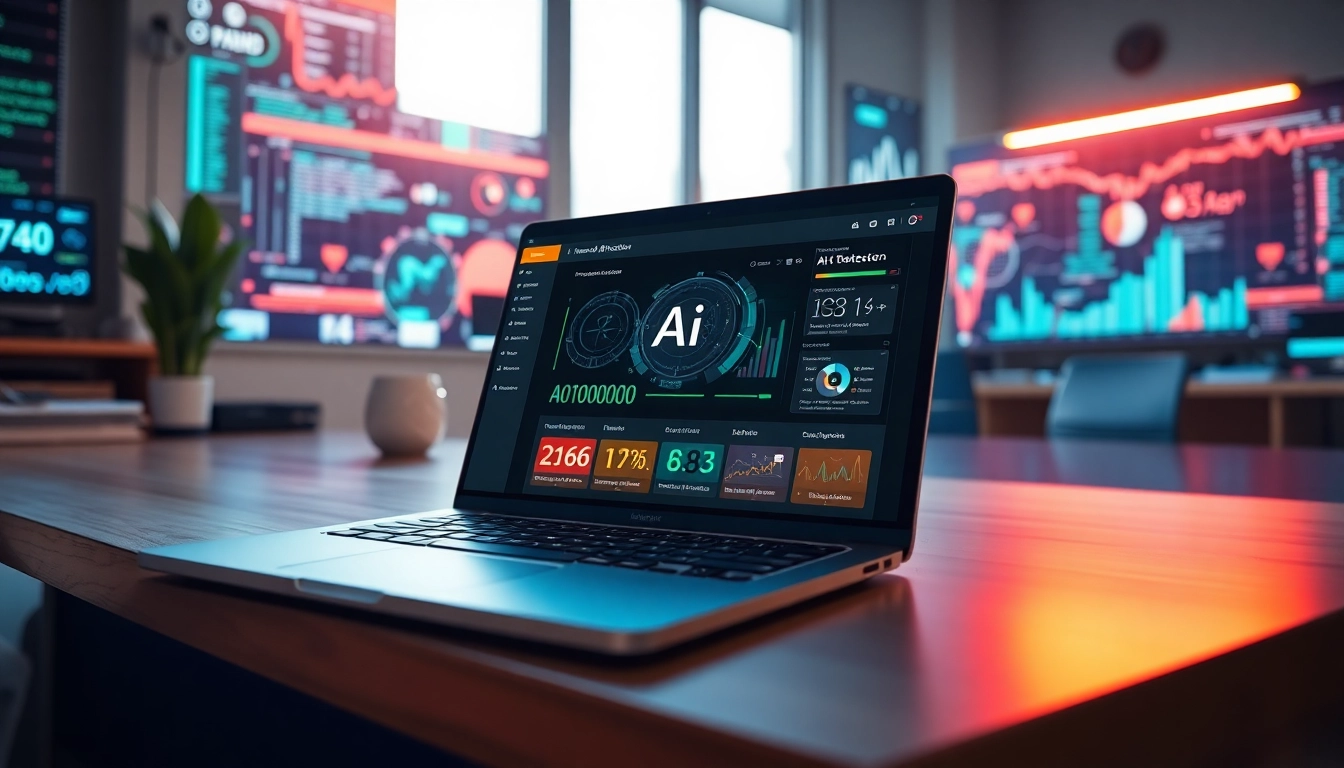Understanding Informatics and Its Impact on Society
What is Informatics?
Informatics is a multidisciplinary domain that encompasses the study, design, development, and implementation of information systems within a wide range of contexts. It integrates computer science, information science, and social science to address problems related to data management, analysis, and dissemination. The primary focus of informatics is on how to effectively use information technology to enhance decision-making and productivity in various fields, from healthcare to education and business.
The evolution of informatics has been rapid, especially in recent years, as technology continues to advance. One of the key aspects of informatics is its ability to analyze and leverage large datasets through techniques like data mining, machine learning, and artificial intelligence. By utilizing these technologies, professionals can extract insights, automate processes, and improve overall efficiency.
The Role of Informatics in Modern Decision-Making
In today’s data-driven environment, informatics plays a pivotal role in modern decision-making processes. Organizations across various sectors are increasingly relying on data analytics to inform their strategies and operational decisions. With access to vast amounts of data, informatics provides tools and methodologies that enable individuals and organizations to make informed choices based on empirical evidence rather than intuition.
For instance, in healthcare, informatics systems can analyze patient data to identify trends and outcomes, enabling practitioners to provide better care based on previous patient histories. Similarly, in business settings, companies can leverage customer data to tailor their marketing strategies, resulting in improved customer satisfaction and engagement.
Key Challenges in Informatics Implementation
Despite its numerous advantages, the implementation of informatics comes with several challenges. One significant issue is the integration of disparate data systems. Many organizations have legacy systems that do not communicate with new technologies, leading to silos of information that hinder comprehensive analysis.
Data privacy and security is another critical concern. As organizations collect and process extensive data, they must ensure compliance with regulations such as GDPR and HIPAA, which can be complex and resource-intensive. Additionally, there is often resistance to change within organizations, as employees may be hesitant to adopt new technologies or processes.
Exploring Informatics Applications Across Various Industries
Informatics in Healthcare: Improving Patient Outcomes
Informatics has revolutionized healthcare, transforming patient care through improved data management. Electronic health records (EHRs) are one of the most notable applications of informatics in this field. These systems facilitate the efficient storage, retrieval, and sharing of patient information, allowing healthcare providers to access comprehensive patient histories at the point of care.
Moreover, predictive analytics in healthcare informatics can anticipate patient needs by analyzing historical data. For example, hospitals can predict spikes in patient admission rates during flu season, ensuring they are adequately staffed and prepared. Telemedicine and remote patient monitoring solutions are also results of informatics innovations, expanding access to care, especially in underserved areas.
Transforming Businesses with Informatics Solutions
Informatics is equally transformative within the business sector. Companies employ various informatics solutions for operational efficiency and strategic analytics. By utilizing customer relationship management (CRM) systems, businesses can track interactions with customers, analyze purchasing behavior, and tailor their offerings accordingly.
Moreover, supply chain informatics aids organizations in optimizing inventory levels, forecasting demand, and enhancing logistics management. This results in reduced operational costs and improved service delivery, making businesses more competitive in their respective markets.
Education and Learning Through Informatics Innovations
The role of informatics in education is crucial, particularly in the age of digital learning and e-learning platforms. Informatics enables educational institutions to analyze student performance data and identify learning gaps, allowing educators to personalize learning experiences.
Moreover, learning management systems (LMS) make it easier to manage course content, track student progress, and facilitate communication between students and instructors. Innovations such as adaptive learning technologies employ informatics principles to tailor the educational material based on individual student needs and learning paces.
Best Practices for Utilizing Informatics Effectively
Defining Clear Objectives in Informatics Projects
To ensure the success of informatics initiatives, it is essential to define clear and measurable objectives from the outset. Organizations should establish what they aim to achieve with their informatics deployments, whether improving patient outcomes, enhancing customer engagement, or increasing operational efficiency.
By articulating these objectives, stakeholders can align their efforts and allocate resources effectively. Furthermore, regular reviews of these objectives can enable organizations to adapt their strategies in response to changing needs and technological advancements.
Gathering and Analyzing Data Efficiently
Efficient data gathering and analysis are at the heart of successful informatics projects. Organizations should implement standardized processes for data collection to ensure that the information gathered is accurate and reliable. This can include utilizing automated data entry systems and integrations with other platforms to minimize human error.
Once data is collected, organizations should employ advanced analytical tools that facilitate real-time insights. Utilizing business intelligence (BI) solutions and visualization software can help stakeholders understand complex datasets intuitively, transforming data into actionable insights.
Ensuring Data Security and Privacy in Informatics
With the sensitive nature of many data types handled in informatics, ensuring data security and privacy is paramount. Organizations must develop robust security protocols to safeguard their data against breaches and unauthorized access. This includes implementing encryption, access controls, and regular security audits.
Moreover, complying with relevant regulations such as HIPAA for healthcare organizations or GDPR for those operating in Europe is crucial not just for legal compliance but also for maintaining public trust. Ongoing training for employees on data privacy practices is also important to foster a culture of security within the organization.
Case Studies: Success Stories in Informatics
Healthcare Informatics Leading to Better Health Outcomes
A notable example of successful implementation of informatics in healthcare is the use of predictive analytics at a major hospital to manage diabetes care. By analyzing data from EHRs, the hospital could proactively identify patients at risk for complications. This initiative led to a significant reduction in emergency room visits and improved overall health outcomes for patients.
How Businesses Achieved Growth Through Informatics Initiatives
A well-known retail chain used informatics to drive its marketing initiatives. By analyzing customer purchasing patterns, the company developed targeted promotions that significantly increased sales during peak shopping seasons. Not only did this lead to higher revenues, but it also enhanced customer loyalty as shoppers appreciated personalized marketing approaches.
Innovative Educational Programs Utilizing Informatics
In the educational sector, a notable case study involves a university that employed analytics to improve student retention rates. By focusing on data related to student engagement, performance, and feedback, the university was able to implement support programs that addressed students’ needs effectively, resulting in enhanced academic success and retention.
The Future of Informatics: Trends and Predictions
Emerging Technologies Shaping the Future of Informatics
The future of informatics is being shaped by a host of emerging technologies, including artificial intelligence (AI) and machine learning. These technologies enable deeper and more sophisticated analysis of data, allowing for predictive modeling that can inform strategy across multiple sectors.
Furthermore, advancements in cloud computing have made it easier for organizations to store and analyze vast datasets without heavy upfront investment in infrastructure. Additionally, advancements in Internet of Things (IoT) devices are providing new streams of data, further enhancing the capabilities of informatics.
The Importance of Continuous Learning in Informatics
As the informatics field continues to evolve, the importance of continuous learning cannot be overstated. Professionals must stay abreast of new technologies, methodologies, and regulatory requirements to remain effective. Ongoing education, training programs, and certification can help ensure that individuals are equipped with the necessary skills to navigate the complex informatics landscape.
Preparing for the Evolving Landscape of Informatics
Organizations must prepare for an ever-changing informatics landscape by fostering a culture of innovation and adaptability. This involves investing in technology, talent, and processes that allow for quick responses to new challenges and opportunities. By building resilient strategies, organizations can leverage informatics to stay competitive in their respective industries.



